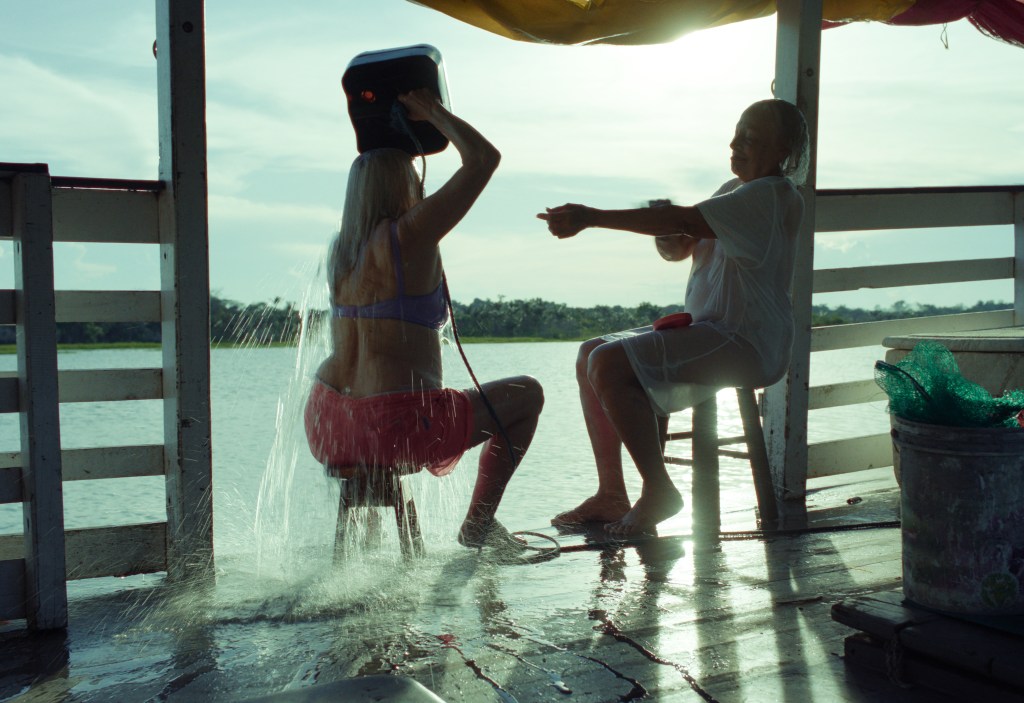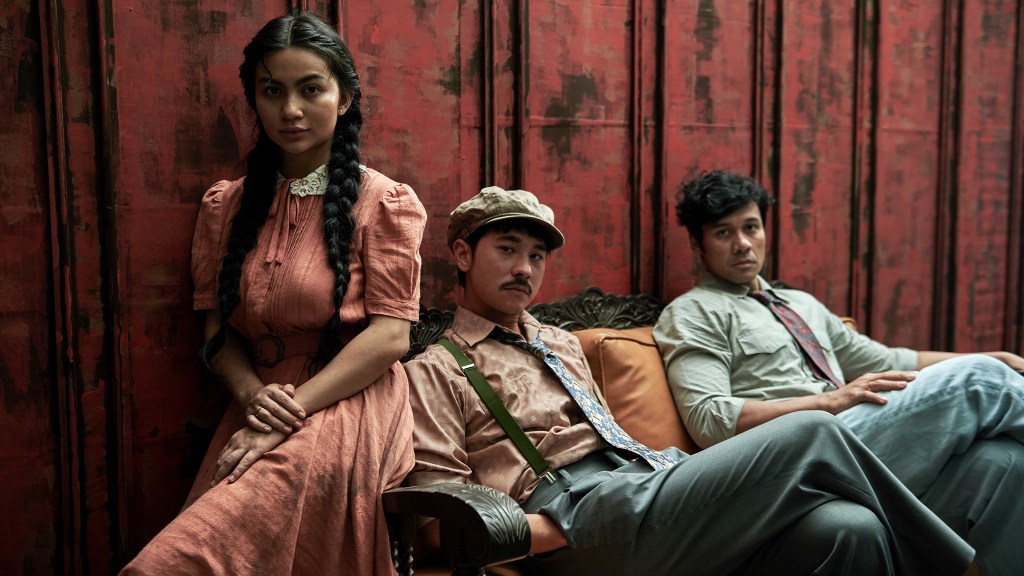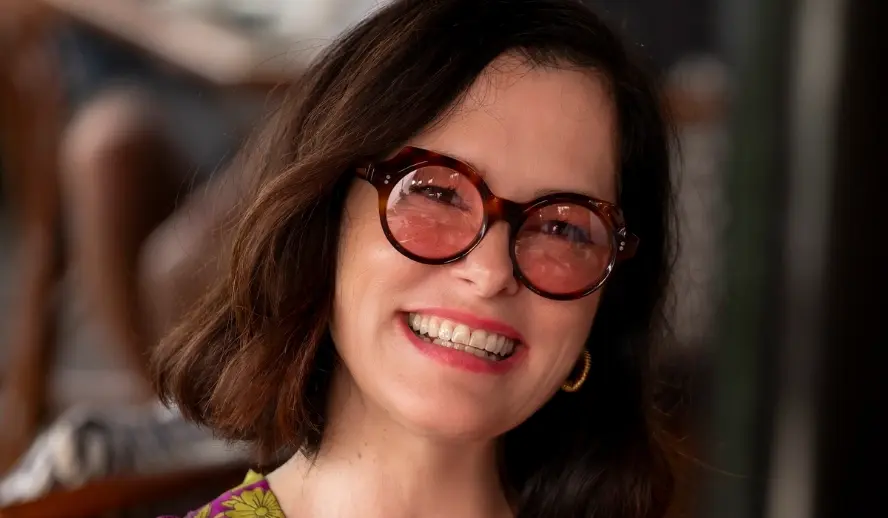One of the many peculiarities of recent U.S. cultural trends is the “over-55 community,” gated havens for well-off retirees who embrace the idea of mono-generational living as an all-comforts interlude before Thanatos comes knocking. In Gabriel Mascaro’s The Blue Trail, a gentle blend of delayed self-realization fantasy and dystopian portent, the cut-off age is 77, which in a way is progress (think of Logan’s Run) and the move is involuntary, but resistance is not futile. Mascaro’s fourth feature can be considered a pair with his previous Divine Love, which also imagined a near-future controlled by a repressive state disguised as a caring Big Brother, but his latest is less deliciously elliptical than earlier films, privileging sensorial rewards that come from the natural world rather than the human body. Set aglow by the earthy force of Denise Weinberg as Tereza, a woman determined not to be put away, The Blue Trail posits a river trip as a path to freedom, and its unpreachy warmth, despite occasional lags in momentum, offers refreshing rewards.
This is Mascaro’s most humane film to date, which isn’t to say that August Winds and Neon Bull weren’t also grounded in the individual’s struggle for self-fulfillment outside the strictures of bourgeois circumscribed society. But in The Blue Trail the director gets deeper inside character, specifically the glow that comes from detaching oneself from presumed usefulness and living in the moment. To that end, the remarkable Miriam Socarrás arrives just in time to make Tereza – and the audience – understand the joy of independence.
“The future is for everyone” announces ubiquitous government broadcasts in a watery community in Brazil’s Amazonas State, where Tereza works in an alligator meat processing plant. As with all slogans however, a fundamental lie is built into the premise: the future is for everyone provided “everyone” is actively contributing to the nation’s prosperity. Once they hit 77, their children are automatically awarded legal guardianship and they’re shipped off to a “Colony,” with the assurance of a happy, care-free life without the threat of loneliness. Anyone resisting is picked up by the “wrinkle wagon,” a sort of open-caged transport vehicle that makes a humiliating spectacle of the captured elderly. Now that Tereza has reached the cut-off age, she’s forcibly retired and told she’s got just a few days before she needs to move to the Colony.
But she’s not ready, not by a long shot. For one, she’s never been in a plane before, yet no one ever asked what dreams she may have. The travel agent won’t sell her a ticket without the authorization of her daughter Joana (Clarissa Pinheiro), so she seeks out non-commercial flight possibilities, which leads her to a boat, a smuggler named Cadu (Rodrigo Santoro) and the possibility of going up in an ultralight flying machine. As with all road/river trips however, transformation comes from the journey, not the destination. A mysterious blue secretion from a rare snail is the gateway drug to revelations as Cadu, under the influence, discloses a major regret that haunts his life and denies him happiness, underlining the idea that life, no matter what age, needs to be grabbed without regrets.
When her hopes for flying are dashed, Tereza returns home only to be rounded up for forcible relocation, yet a clever ruse allows her to escape and she winds up asking atheist digital Bible seller Roberta (Socarrás) for sanctuary on her boat. It’s a meeting of like-minded souls: Roberta was able to buy her way out of being shipped off to the Colony — money will always talk — and her delight in freedom reveals the path Tereza must take.
While always sensitive to the compositional pleasures afforded by nature, Mascaro is especially taken with the meandering pathways of the Amazon and its tributaries, whose seemingly illogical snaking shapes act as geographic metaphors for the film’s message that life is not about the simplest, straightest way to get from point A to point Z. The Blue Trail asserts that productivity is the antithesis of human fulfillment, offering an alternative of sorts to the empty promises of capitalism and Soviet-style communism with its insistence that our well-being isn’t tied up with notions of usefulness. In the best scene, Tereza and Roberta wash themselves using buckets of glistening water, their bodies responding to the physical pleasure, enhanced by sunlight and the sense of communion between two women who choose to float into the future on their own steam.
Title: The Blue Trail (O último azul)
Festival: Berlin (Competition)
Director–screenwriters: Gabriel Mascaro, Tibério Azul
Cast: Denise Weinberg, Rodrigo Santoro, Miriam Socarrás, Adanilo, Clarissa Pinheiro
Sales agent: Lucky Number
Running time: 1 hr 26 mins



